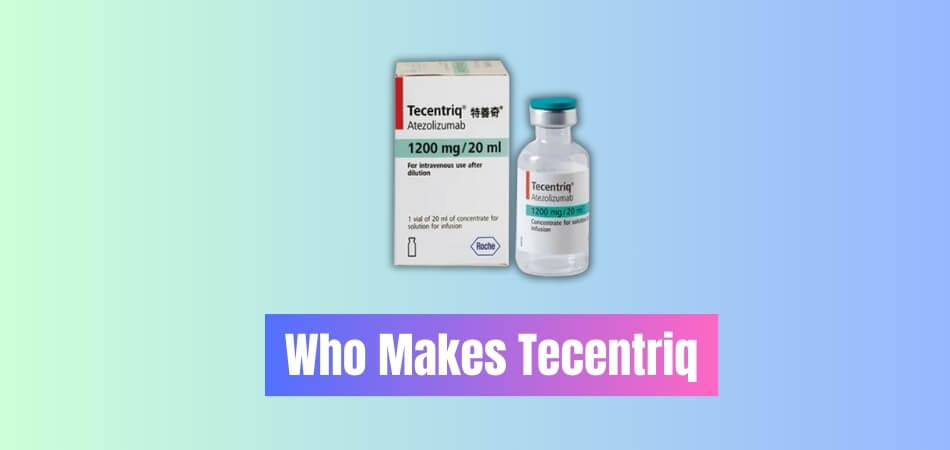In recent years, the development of new treatments for cancer has become increasingly important to the medical community. One of the leading treatments for cancer is Tecentriq, a revolutionary immunotherapy drug developed by the pharmaceutical giant, Genentech. In this article, we will explore who makes Tecentriq, the amazing breakthroughs they have achieved, and the potential of this life-saving drug. So, who makes Tecentriq? Let’s find out.
Tecentriq is a cancer immunotherapy drug developed by Roche, a Swiss-based pharmaceutical company. It is approved to treat advanced types of bladder cancer, non-small cell lung cancer, and other types of cancer. Tecentriq works by blocking a protein called PD-L1, which helps cancer cells evade detection by the body’s immune system. This allows the body’s own immune system to fight the cancer cells, which can help control or even eliminate the cancer. Tecentriq is administered by intravenous infusion, and is generally given in combination with other cancer drugs.
Who Makes Tecentriq?
Tecentriq is an immunotherapy medication designed to treat certain types of cancer. It is made by Genentech, a subsidiary of Roche, a Swiss multinational healthcare company. Tecentriq is the first approved cancer immunotherapy drug from Genentech and the only approved biologic from the company.
How is Tecentriq Made?
Tecentriq is produced using a process called recombinant DNA technology. This process involves taking DNA from a single cell, isolating it, and then inserting it into another cell. This new cell then produces large amounts of the desired protein. In the case of Tecentriq, the protein is an antibody that targets a specific protein found on certain types of cancer cells.
What is Tecentriq Used For?
Tecentriq is used to treat several types of cancer, including:
- Non-small cell lung cancer
- Urothelial carcinoma
- Astrocytoma
- Metastatic melanoma
- Squamous cell carcinoma of the head and neck
- Glioblastoma
Tecentriq works by blocking a protein called PD-L1, which is found on some types of cancer cells. By blocking this protein, Tecentriq helps the body’s immune system recognize and attack the cancer cells.
Frequently Asked Questions
Who Makes Tecentriq?
Answer: Tecentriq (generic name: atezolizumab) is a monoclonal antibody medicine developed and marketed by Genentech, a subsidiary of the pharmaceutical company Roche.
How Does Tecentriq Work?
Answer: Tecentriq works by targeting and binding to a protein called PD-L1, which is found on the surface of some cancer cells. This binding prevents PD-L1 from attaching to other proteins and blocks a signal that tells the cancer cells to divide and grow. By blocking this signal, Tecentriq can help slow or stop the growth of certain types of cancer cells.
What Types of Cancer Does Tecentriq Treat?
Answer: Tecentriq is approved by the FDA to treat certain types of non-small cell lung cancer, urothelial carcinoma (a type of bladder and urinary tract cancer), and small cell lung cancer. It is also used off-label to treat certain other types of cancer, including breast cancer and melanoma.
What Are the Side Effects of Tecentriq?
Answer: Common side effects of Tecentriq include fatigue, nausea and vomiting, constipation, decreased appetite, and joint pain. Other possible side effects include infusion reactions (allergic reactions to the medication), diarrhea, fever, rash, and low levels of certain minerals in the blood.
How Is Tecentriq Administered?
Answer: Tecentriq is administered intravenously (through an IV). It is usually given over 60 minutes once every 3 weeks, but some patients may need to take it more often.
How Much Does Tecentriq Cost?
Answer: The exact cost of Tecentriq depends on the patient’s insurance coverage and other factors, but it can range from around $4,000 to $20,000 for a single 3-week cycle.
In conclusion, Tecentriq is a revolutionary cancer treatment drug that has been developed by Genentech, a subsidiary of the Swiss multinational pharmaceutical company, Roche. Genentech is committed to bringing innovative and life-saving treatments to patients and their families, and Tecentriq is a perfect example of that commitment in action. With the help of Tecentriq, many cancer patients have been able to live longer, healthier lives, and for that, we can all be thankful.
